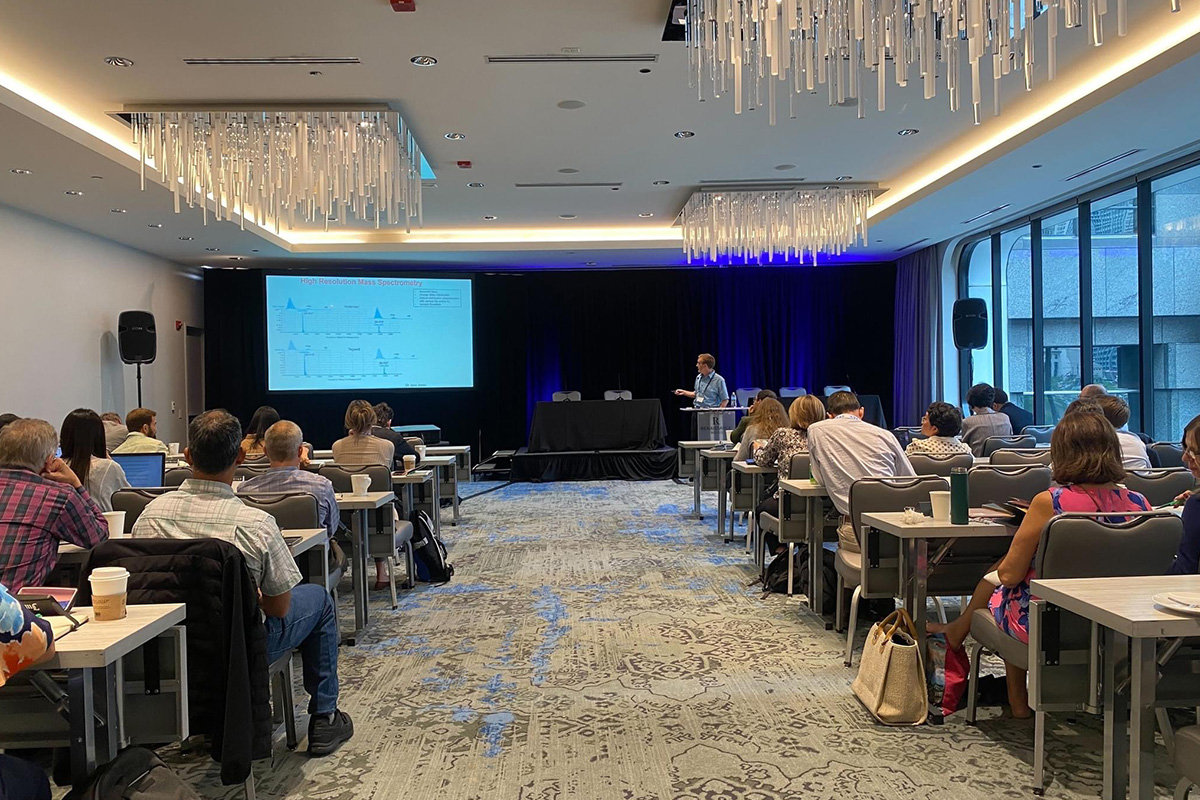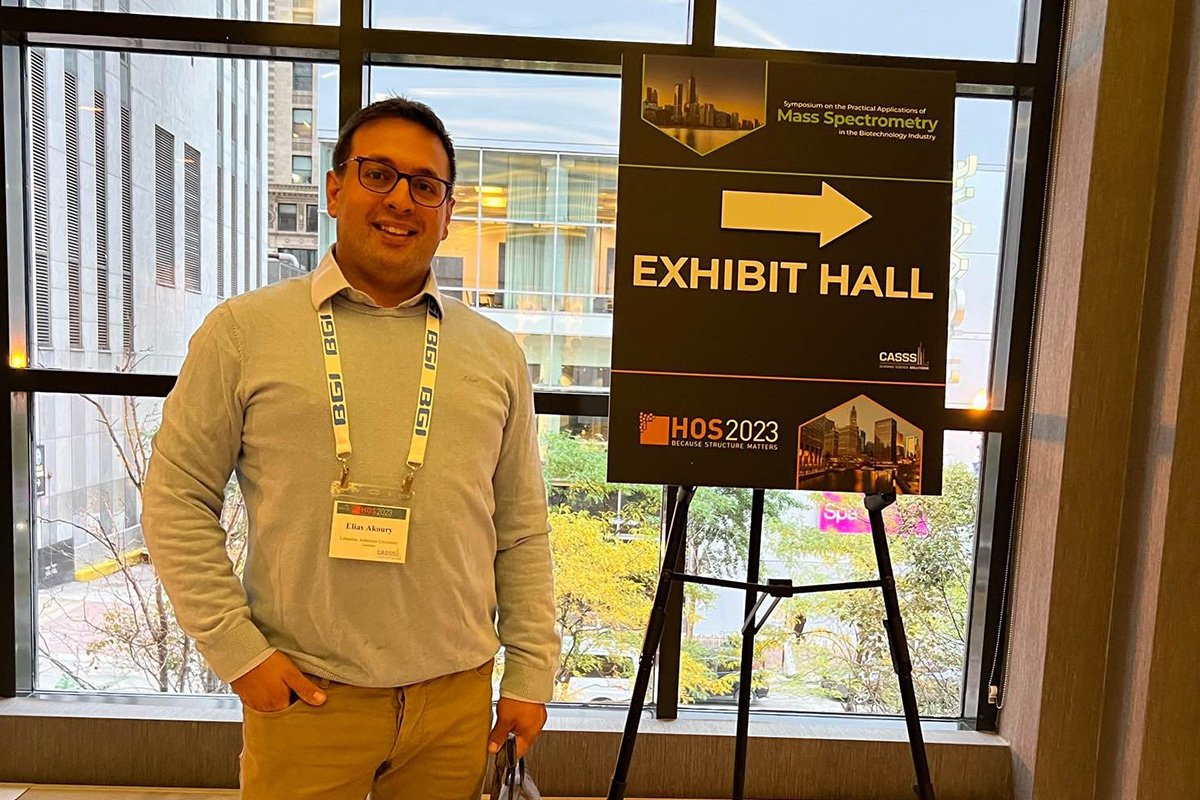The Protein Frontier in Therapeutic Research
Dr. Akoury’s research abstract in the field of protein therapeutics and biophysical chemistry earns him the Next Generation Investigator Award.
Assistant Professor of Chemistry Elias Akoury recently received the Next Generation Investigator Award from the California Sharing Science Solutions (CASSS) Board of Directors – a non-profit society made up of over 5,000 industry, academic and regulatory professionals – for his research abstract on protein therapeutics.
Upon acceptance of his abstract by CASSS and the organizing committee of the Higher Order Structure of Protein Therapeutics 2023 in September, Dr. Akoury was invited to share his findings on “Structural Insights into the Binding Mechanism of Clr4 Methyltransferase to H3K9 Methylated Nucleosome” with the CASSS Community, young professionals and enthusiasts of protein high-order structure (HOS) at a conference in Chicago jointly held with the Symposium on the Practical Applications of Mass Spectrometry in the Biotechnology Industry.
While the current study is under review by a peer-reviewed journal, the foundational work for this project has been published in the top-quartile Journal of Nucleic Acids Research with Dr. Akoury as the primary author.
Through his research on the dynamics of HOS, Dr. Akoury sheds light on the role of epigenetics –which examines the impact of environmental factors on gene expression or their translation into proteins – in the propagation of certain diseases, among which cancer, and the efficiency of therapeutic treatments.
“High-order protein structures are essential for protein-based therapeutics and efficacy of drug products,” noted Dr. Akoury. High-resolution spectroscopic and microscopic techniques, he added, provide a closer look at the structural aspects of proteins and DNA at the molecular level.
Dr. Akoury’s research is focused on the nucleosome, a fundamental component of our genetic material. Resembling a puzzle piece composed of DNA and special proteins (H2A, H2B, H3 and H4), the nucleosome plays a crucial role in regulating the mechanism of our DNA and genetic processes by ensuring that the right genes are switched on or off at the right time to ensure optimal health and proper body function.
In the study, Dr. Akoury found that a protein called Clr4 can switch off certain genes by attaching tiny chemical markers, called methyl groups, to a specific place on a protein called H3, which is known as Lysine 9 (H3K9). This essentially means that a specific part of the proteins around which the DNA is coiled will receive chemical tags informing the cell to skip the proteins or not read them.
In cancer, these epigenetic changes can contribute to the disease’s progression, which is why “understanding them is of utmost importance as it paves the way for the development of targeted treatments,” he said. By zeroing in on the methyl groups, such treatments can effectively silence them or activate protective genes, thus arresting cancer growth.
“Modern epigenetics relies on combining new and specialized methods to analyze the human genome and how it impacts disease,” stated Dr. Akoury. “These studies have also helped to identify new possible therapeutic targets not only in cancer but also in neurological disorders and autoimmune diseases.”
The recognition Dr. Akoury received is both a personal achievement and a reflection of LAU’s support in fostering quality in research. It is this commitment to research and the drive to advance knowledge and explore deeper areas in the field that motivated Dr. Akoury to investigate the territory of therapeutic physics.
“Embarking on a career in epigenetics, structural biology and biophysical chemistry can be incredibly fulfilling and make a real difference,” he noted. “Staying informed is key, as well as keeping up with the latest findings by reading scientific journals, participating in conferences and following notable researchers in the field.”

